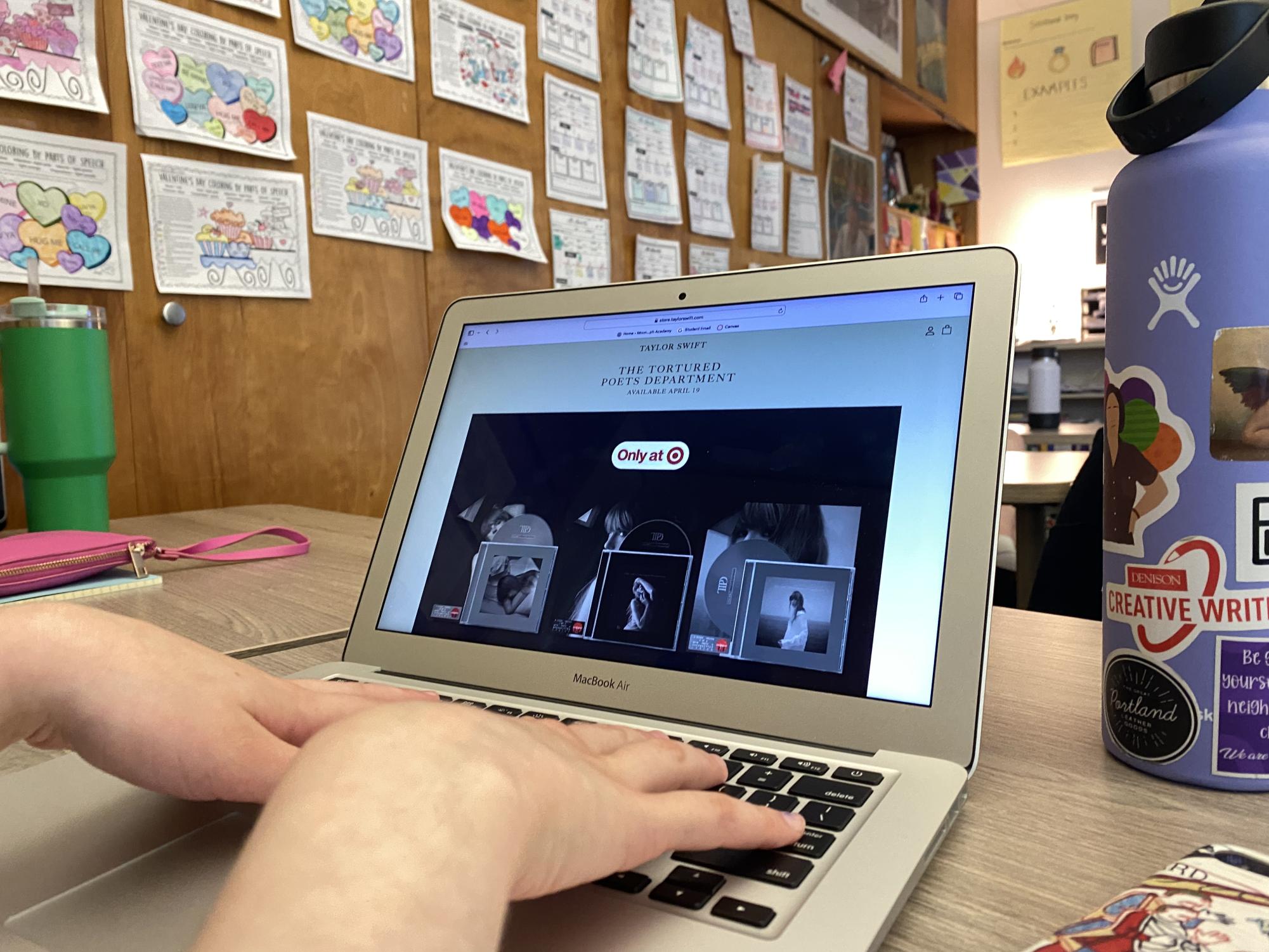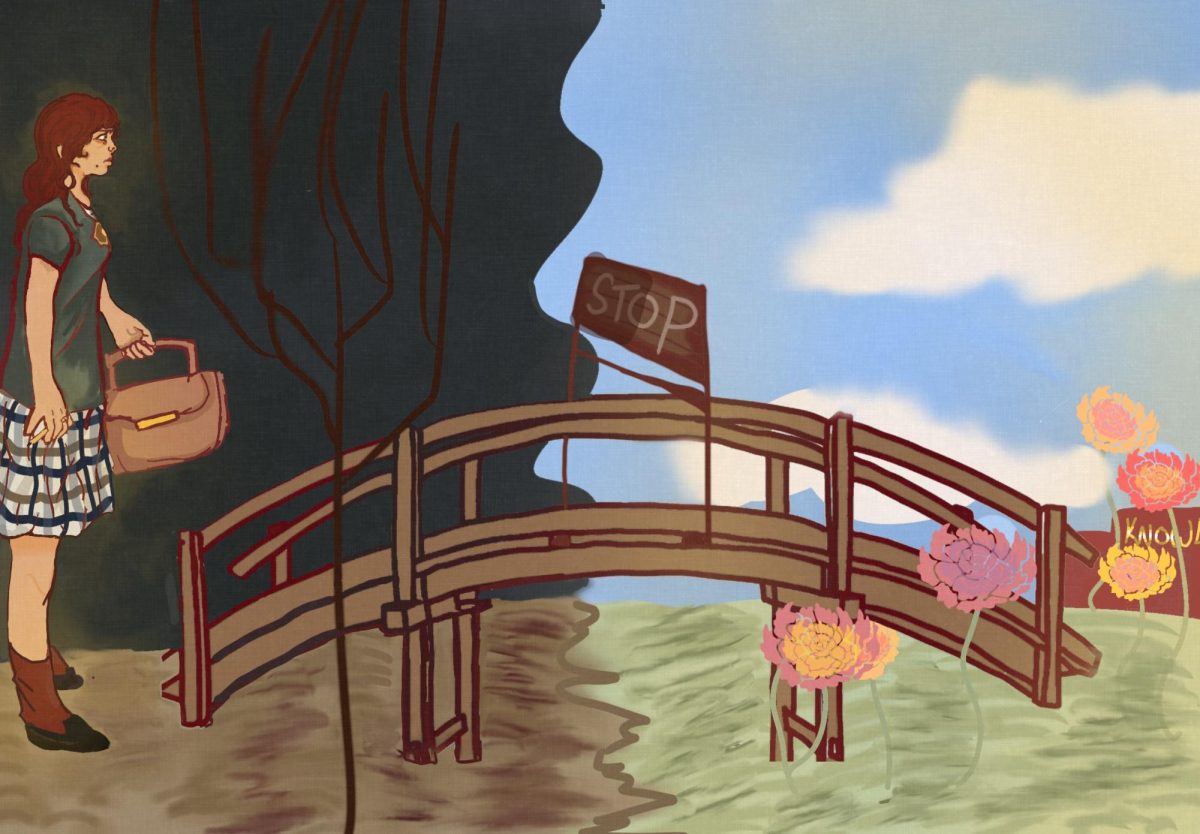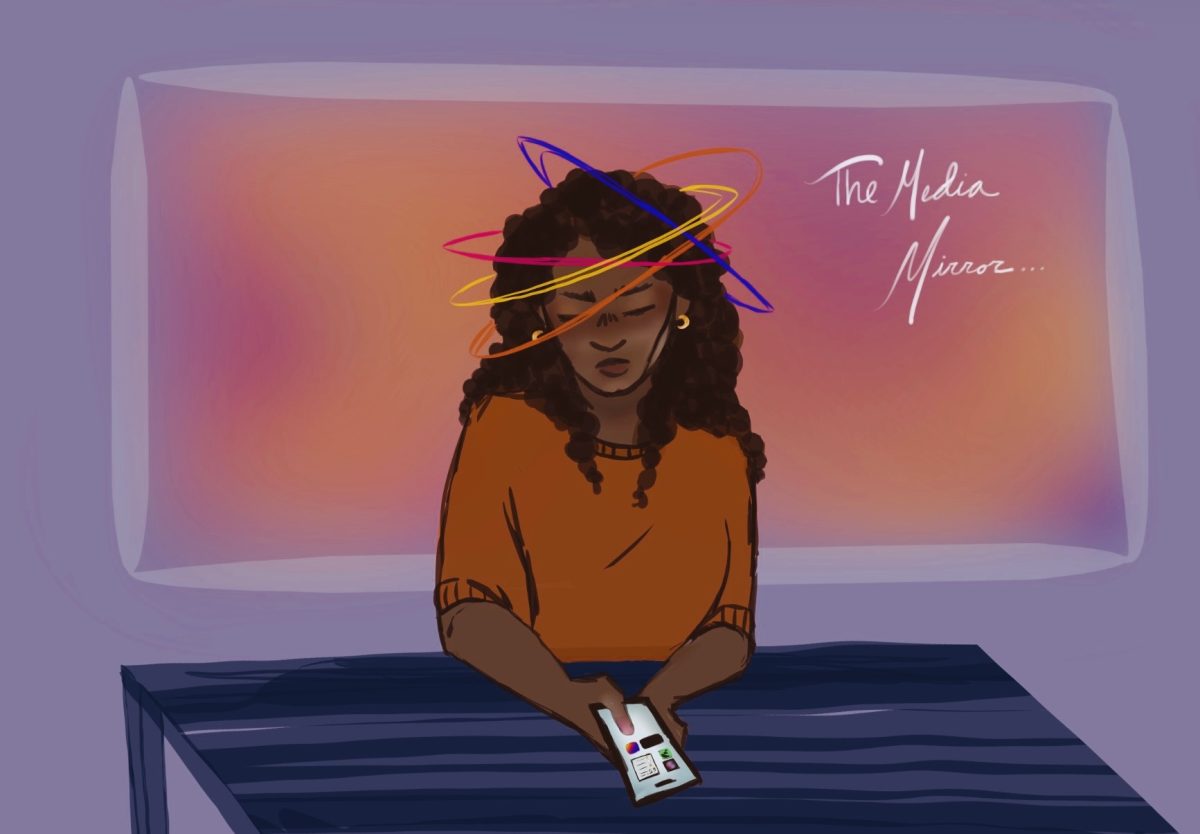Every time I have logged on to Twitter over the past month, I have felt angry, because every single time, I have seen a new Taylor Swift vinyl, and this Taylor Swift, this undefeatable pop icon who only connects with her fans in order to sell products to them, is not the Taylor Swift I grew up with.
This March, while accepting her award for Best Pop Vocal Record, Taylor Swift announced her new album “The Tortured Poets Department“, which will be released on April 19 of this year.
The album subverted fan’s expectations of another re-recorded album coming soon and sparked new theories about the stylistic shifts Swift would pursue on this next project. In short, fans were thrilled about the announcement of the album, which Swift says she has been working on for two years.
In the time since the announcement just over a month ago, Swift has released 8 vinyls for preorder, 4 of which were limited editions and are no longer for sale.
The 4 limited edition records each contain a unique bonus track – all of which will no doubt be released on streaming platforms after the album comes out. There is no difference between the vinyls beside the design and the one extra song they each have.
Each vinyl was revealed individually; fans had no ability to choose their favorite to purchase, and some report regret in their decision, ordering a second vinyl and then canceling their initial orders.
The methods Swift has taken up to market this album are an egregious progression in a marketing trend that has become more and more exploitative of her fans for each project she has released over the last few years.
By releasing all of these versions, Swift plays on her fans’ desire to support her. Many fans feel that, by buying every version of the album, they are proving their status as a True Swiftie, even though Swift is never going to acknowledge their existence, outside of the dollars they are pouring into her bank account.
Additionally, since Swift is now a generational pop star, those who grew up with her physical music as their only listening medium feel attached to the format, and thus are more likely to purchase multiple copies of a physical album.
In addition to the exploitative nature of this campaign, it also encourages wasteful materialism. Many of the records sold will never actually be played, and are only being purchased for their collective value. For those that do own record players, there is no need to own more than one copy of an album – you can only play one album at a time.
“I feel like she’s marketing us an idea of an album but not an actual album,” Vanessa Ksiazek ‘25 said, while discussing the fact that all of these vinyls have been put on sale before any singles have been released. Students like Ksiazek think the album is overly focused on aesthetics, instead of the actual art.
For me, this shift in Swift’s marketing strategies is not surprising, but very disappointing. These methods have been paired with Swift’s retreat from a true connection with her fans, along with an almost militant control of her public image.
The Taylor Swift that I grew up with developed her fame from a place of honesty and earnest connection with her fans. By using public relations campaigns like secret shows and the 1989-Era Christmas Presents, she would always make an effort to know her fanbase. Of course, this is before she could assume that everyone was her fan.
Swift’s public relations today are marketed toward an extremely general audience. She’s not behind any of her posts, and makes no effort to connect with her fans one on one.
While I understand that increased fame leads to an increase in invasive and parasocial fans, Swift has been able to connect with her fans while retaining fame before, without being as impersonal as she is today.
“I feel like she hasn’t been as connected with her fans, like with ‘Midnights Mayhem’. That was so great. I miss that so much” Charlotte Kephart ‘25 said.
When I see Swift now, I don’t feel connected to her – at least, not the way I used to. All of her moves now appear to be calculated years in advance, with no purpose but to make the most money possible, although she is already a billionaire. She is distanced from her fans while taking advantage of their support for her.
What can you do to resist this change in Swift’s marketing? Don’t buy the vinyls unless you have a record player. If you do, wait for the Indie release, so you can support local businesses. Pirate the bonus tracks, or just wait for them to be on streaming. I promise they will be on Spotify by July – you’ll be okay until then.
Above all, remember to spend your money wisely. You are not less of a fan for owning less merchandise than someone else.










Chloe • Apr 19, 2024 at 2:33 pm
Sof, you are only speaking factssss You perfectly represent the swifties that are pressured to buy everything and anything in sight! Fantastic job 🙂
Paige Carson • Apr 19, 2024 at 1:26 pm
AMAZED!! LOVED IT !! PERFECT!
Isabella • Apr 18, 2024 at 12:18 am
Perfectly said I felt IMMEDIATE pressure to purchase the vinyl when the album was announced to prove that I was a real fan even though I knew how many were still to be announced. The old Taylor should answer the phone again.
Charlotte Kephart • Apr 17, 2024 at 10:05 pm
YOU ARE AMAZING SOF!!!!!! So so so proud of you. and I’m happy to be featured
Charlotte Kephart • Apr 17, 2024 at 10:01 pm
YOU ARE AMAZING SOF!!!!! proud of you and happy to be featured
Kaelyn McFadden • Apr 17, 2024 at 9:56 pm
omg that cover picture is so good i wonder who took it??
Vanessa • Apr 17, 2024 at 9:27 pm
#quoted and famous! Loved reading this – you put our thoughts down so so well!!
Michelle J • Apr 17, 2024 at 9:19 pm
YESSS SOFIA AMAZING BEAUTIFUL. I KNEW THE FUTURE #1 AUTHOR IN THE WORLD IN HIGHSCHOOL!